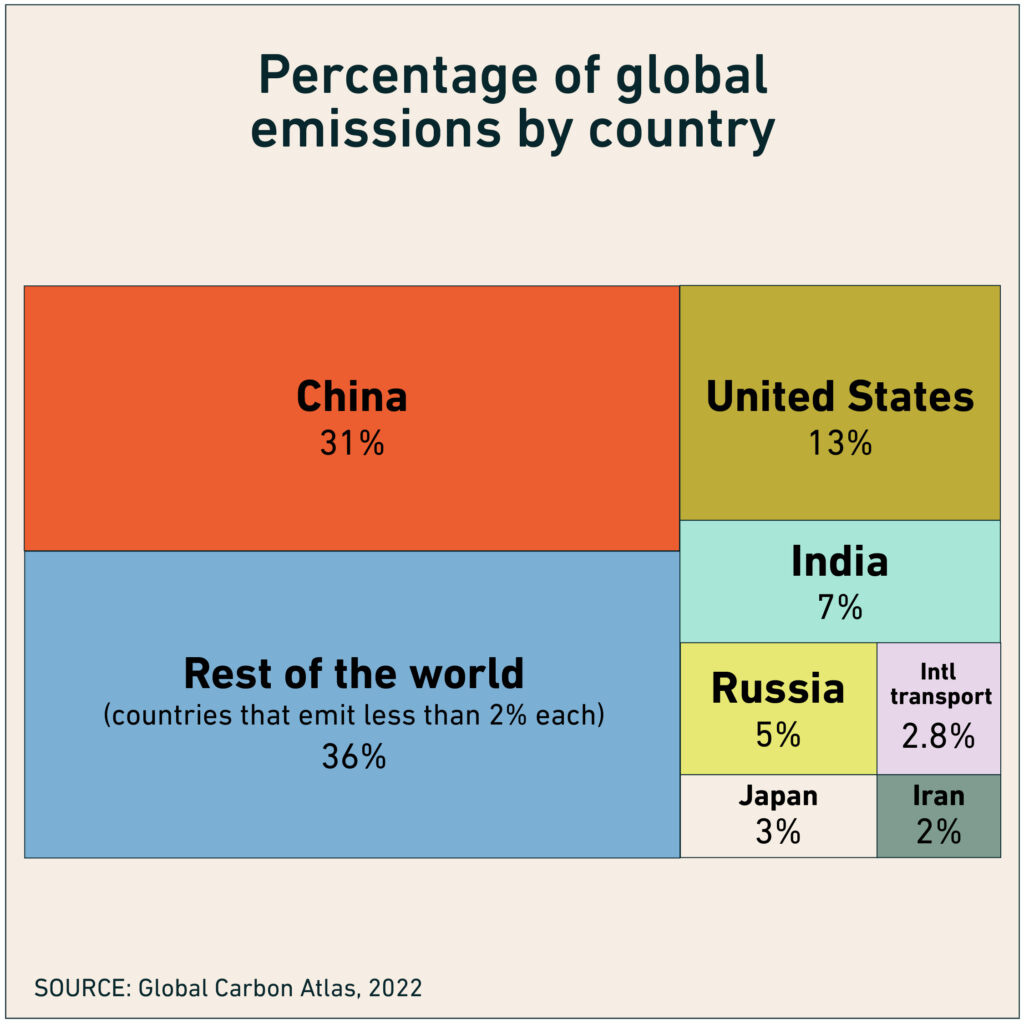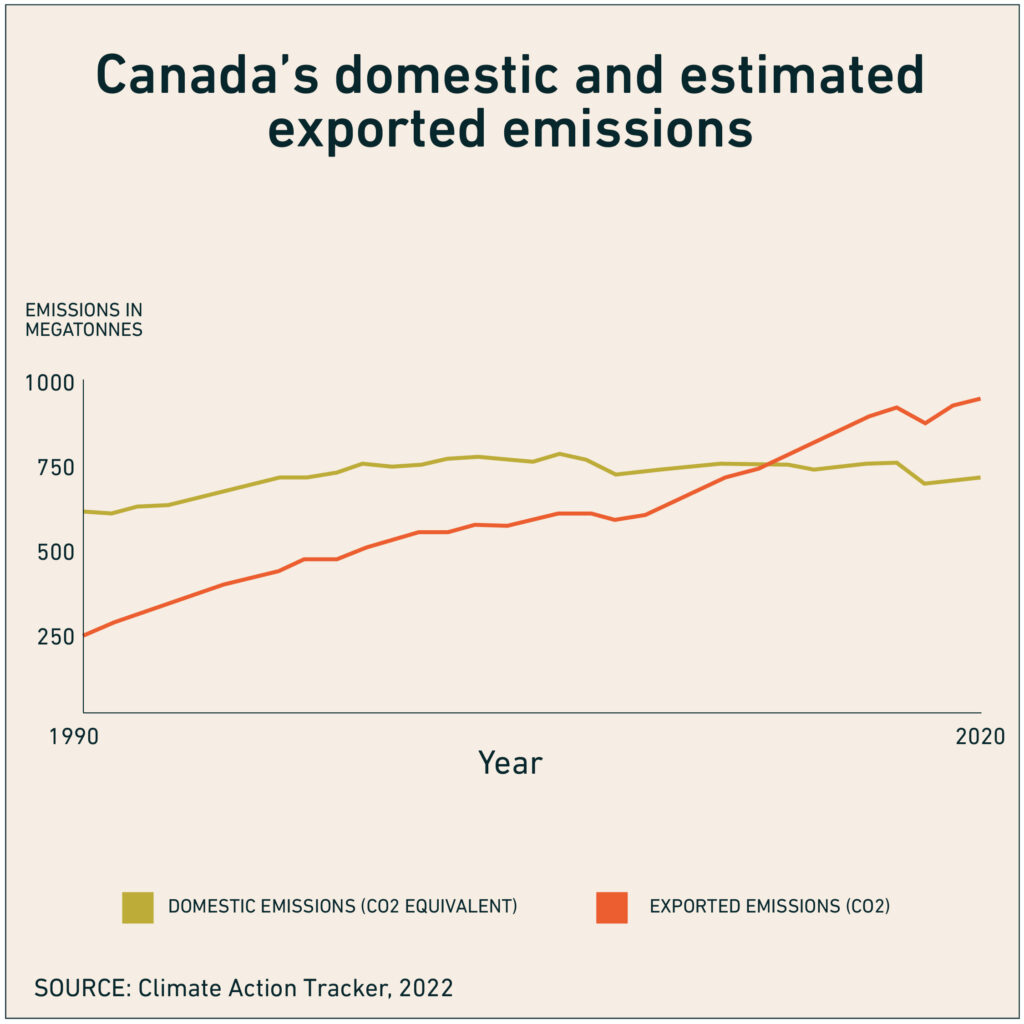While advocating for ambitious climate action in Canada, we get lots of comments from people saying “Canada’s emissions are negligible. If you want to address climate change, look at the big emitters like China and India.”
Although it’s true that Canada emits less than two per cent of global greenhouse emissions, there are many reasons why this is not a valid argument against implementing robust climate policies that will reduce ours. Canada’s climate action matters on a global scale. Here are five reasons why:
1. If every country with less than two per cent of global emissions did nothing, the biggest chunk of emissions would remain unaddressed.
Only six countries have emissions that account for more than two per cent of the global total: China, the United States, India, Russia, Japan and Iran.
Every other country emits less than two per cent and might consider its contribution negligible. Collectively, these countries’ carbon emissions add up to 36 per cent of the world total. That’s more than the biggest emitter, China!
Clearly, every country needs to do its part, especially countries with the economic means to do so.
It’s also important to note that China leads the world in wind and solar, with twice as much capacity under construction as the rest of the world combined!
2. Wealthy countries such as Canada that have emitted the most historically have the best means to reduce emissions and therefore the moral responsibility to do so.
Global warming is driven by the cumulative, not annual, amount of greenhouse gas emissions. So, the historical context of which countries have emitted the most over time matters.
With a comparatively tiny population, Canada is ranked as 10th in the world for total cumulative emissions. That means we have used more than our fair share of the global carbon budget (the total amount of carbon we can emit before surpassing the maximum warming of 1.5 C). In other words, Canada is disproportionately responsible for the climate crisis.
As a developed nation with high standard of living, we are more able than most to manage the costs of a transition away from fossil fuels. We therefore have the moral responsibility to cut emissions at home and to support developing countries with the increasing costs of responding to the climate crisis.
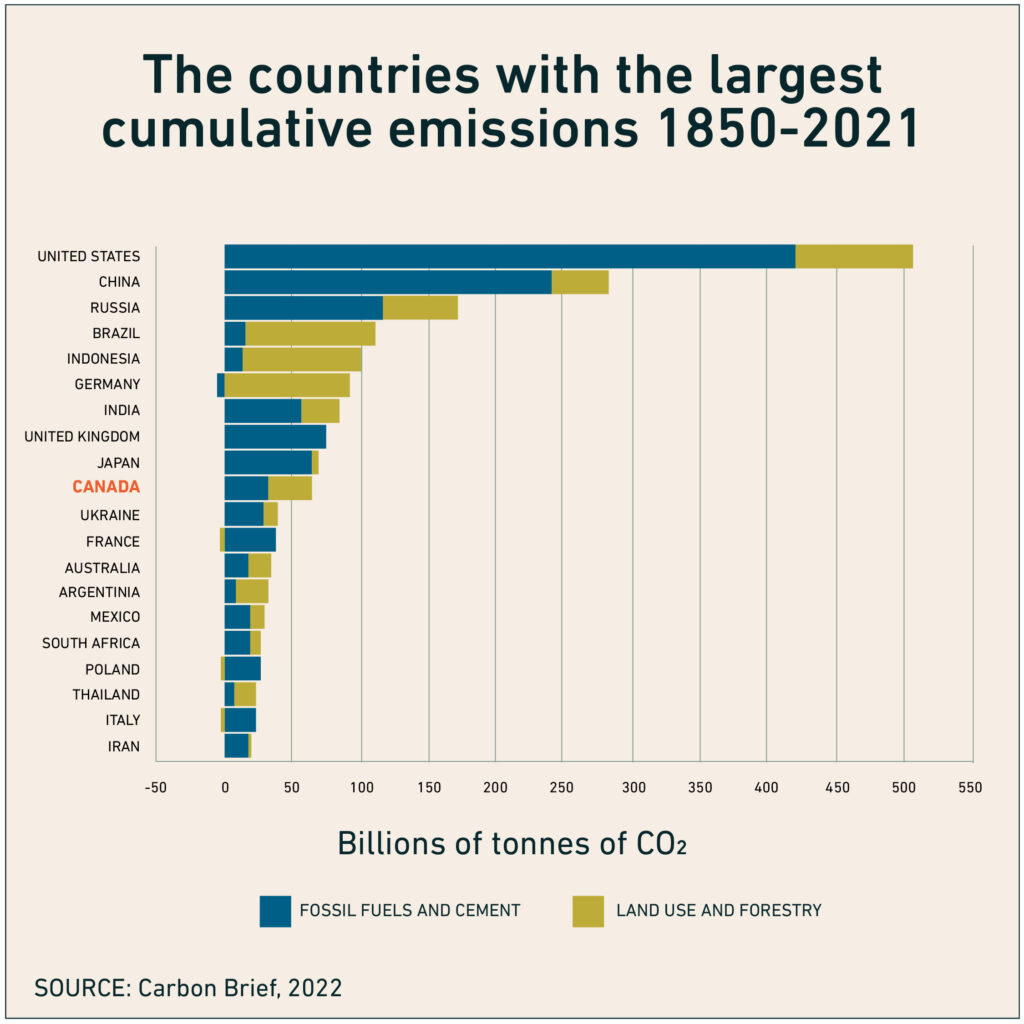
3. The fossil fuels we export don’t count toward our national emissions.
Canada exports most of its crude oil and just under half of its fossil gas. When these exported fossil fuels are burned, 939 megatonnes of carbon dioxide are emitted (estimate from 2022).
That’s 1.3 times more than the total greenhouse gases emitted at home. In the meantime, the oil and gas industry continues with plans to expand extraction and exports.
When you take this into account, it becomes clear that Canada’s energy sector, energy policies and climate ambition are significant on the global stage.
4. Our oil and gas reserves are some of the biggest in the world.
Canada is sitting on the third-largest oil and gas reserves in the world, representing a 10th of all global deposits.
Last year, Canada produced 5.76 million barrels of oil per day, making up six per cent of the world’s total production. Even with this high level of production, Canada has an estimated 168 million barrels of oil, most of it in Alberta’s oilsands. This oilsands bitumen requires intensive extraction and processing, causing significant environmental damage.
And the Montney fossil gas fields in B.C. and Alberta are so large that they are considered one of the world’s largest “carbon bombs.”
So does Canada’s climate ambition matter if our emissions are less than two per cent of the global total? YES! Leaving our massive, damaging oil and gas deposits in the ground would go a long way to preventing further climate chaos.
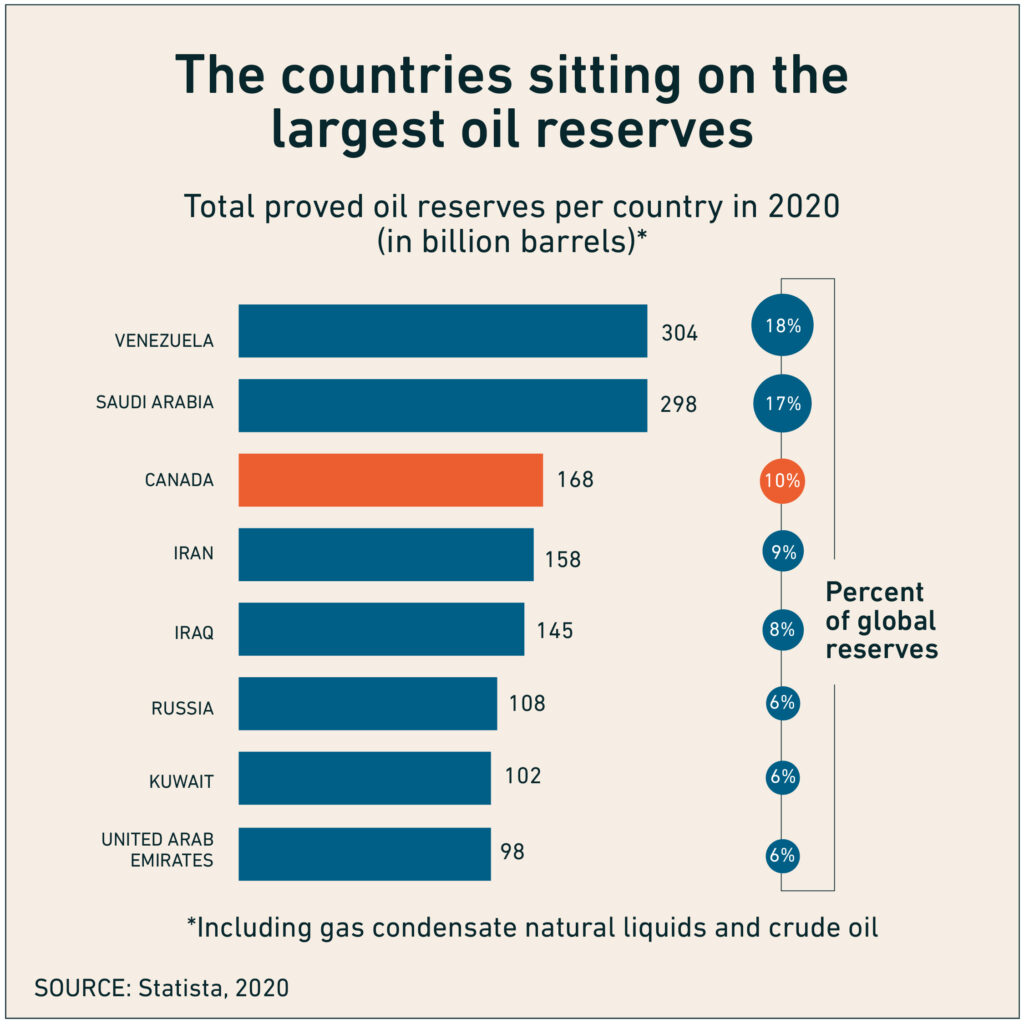
5. Although our total emissions may seem low, our per capita emissions are among the worst in the world — mainly because of the oil and gas sector’s outsized emissions.
Of the top emitting countries, Saudi Arabia is the only one with a greater per person carbon footprint than Canada. So, while countries like China and India have more total emissions, Canada’s per capital emissions are twice as high as China’s.
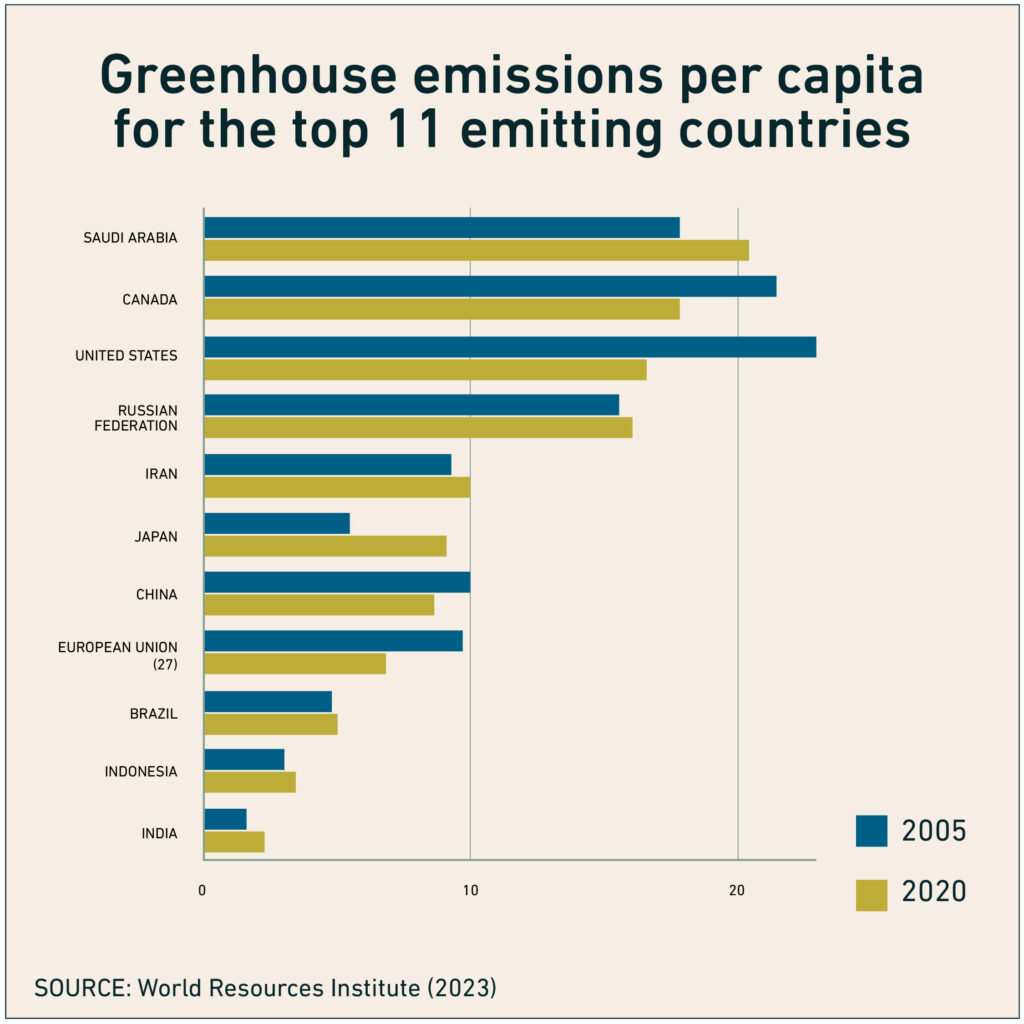
We won’t solve climate change without everyone stepping up to the plate.
Climate change is a global problem that needs international collaboration among big and small players. Although Canada’s domestic emissions might not seem like much, it’s clear we play a significant role on the global climate and energy stage.
We can choose to modernize and join the rapidly growing renewable energy revolution, which will bring jobs, better technologies, energy security and stability. Or, we can continue to put all life on Earth at risk with polluting, climate-altering and increasingly costly fossil fuels.
The choice is clear.
Related Projects
Always grounded in sound evidence, the David Suzuki Foundation empowers people to take action in their communities on the environmental challenges we collectively face.
